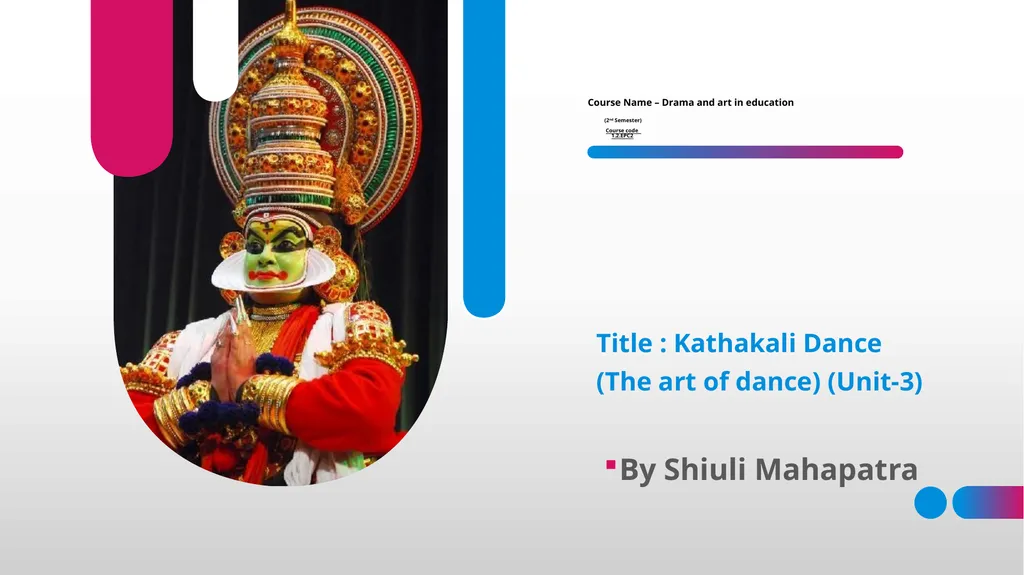
Author : conchita-marotz | Published Date : 2025-05-23
Description: Course Name Drama and art in education (2nd Semester) Course code 1.2.EPC2 Title : Kathakali Dance (The art of dance) (Unit-3) By Shiuli Mahapatra . INTRODUCTION KATHAKALI , a form of ritual drama originated in Kerala. Evolving fromDownload Presentation The PPT/PDF document "" is the property of its rightful owner. Permission is granted to download and print the materials on this website for personal, non-commercial use only, and to display it on your personal computer provided you do not modify the materials and that you retain all copyright notices contained in the materials. By downloading content from our website, you accept the terms of this agreement.
Here is the link to download the presentation.
"Course Name – Drama and art in education (2nd"The content belongs to its owner. You may download and print it for personal use, without modification, and keep all copyright notices. By downloading, you agree to these terms.











![“DRAMA” Types of Drama Tragedy: [solemn, personal, religious & Social Issues]](https://thumbs.docslides.com/762817/drama-types-of-drama-tragedy-solemn-personal-religious-amp-social-issues.jpg)

